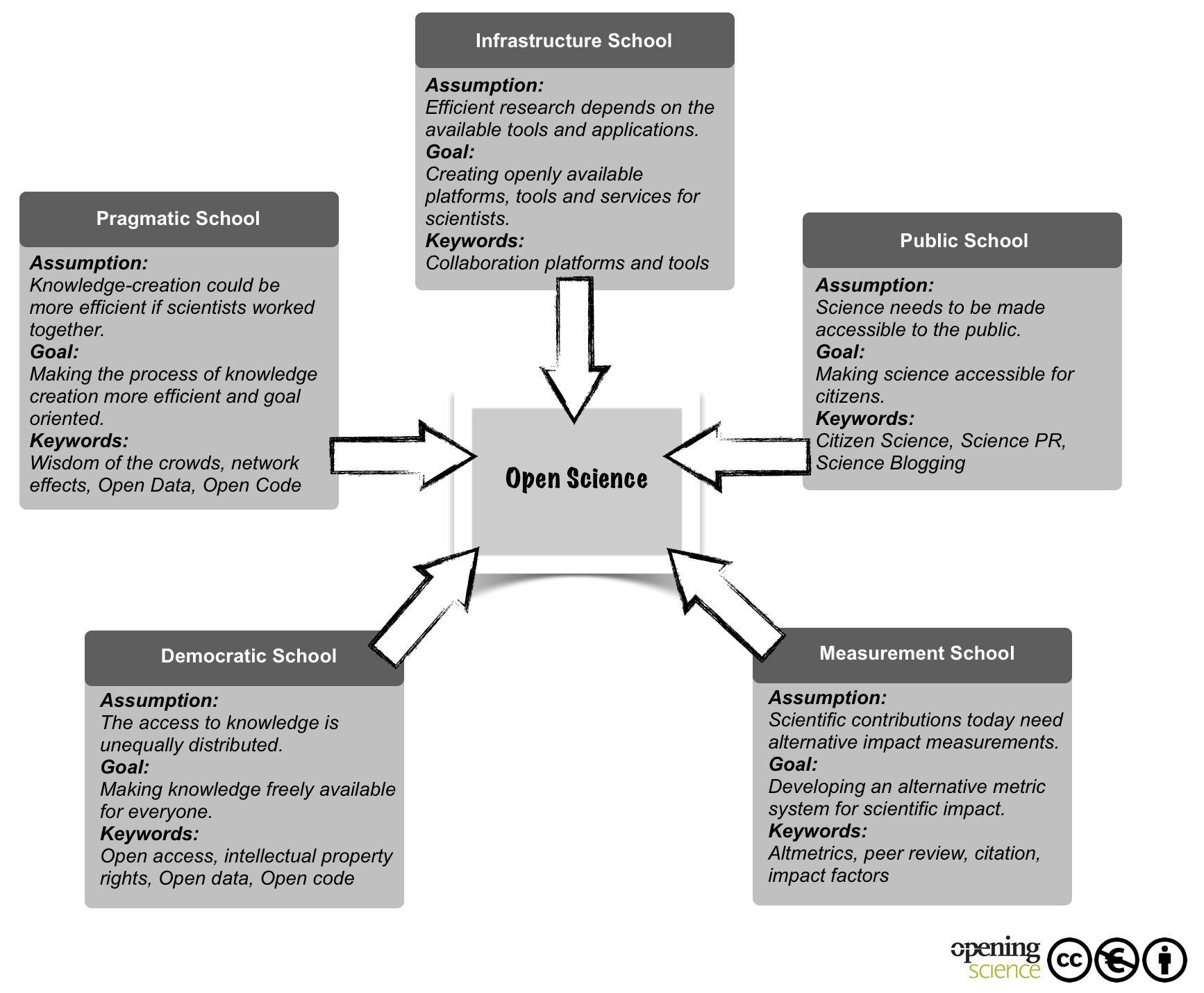
Below are the links the that I referred to in my presentation at the Ushinsky Scientific Pedagogical Library

| School of thought | Central assumption | Involved groups | Central Aim | Tools & Methods |
| Democratic | The access to knowledge is unequally distributed. | Scientists, polititians, citizens | Making knowledge freely available for everyone. | Open access, intellectual property rights, Open data, Open code |
| Pragmatic | Knowledge-creation could be more efficient if scientists worked together. | Scientists | Opening up the process of knowledge creation. | Wisdom of the crowds, network effects, Open Data, Open Code |
| Infrastructure | Efficient research depends on the available tools and applications. | Scientists & platform providers | Creating openly available platforms, tools and services for scientists. | Collaboration platforms and tools |
| Public | Science needs to be made accessible to the public. | Scientists & citizens | Making science accessible for citizens. | Citizen Science, Science PR, Science Blogging |
| Measurement | Scientific contributions today need alternative impact measurements. | Scientists & politicians | Developing an alternative metric system for scientific impact. | Altmetrics, peer review, citation, impact factors |
Source: Benedikt Fecher & Sascha Friesike (2013) Open Science: One Term, Five Schools of Thought
#digihumfi in TwitterThis memo describes the background and targets of Open Science and Research Initiative (ATT), established in 2014 by the Finnish Ministry of Education and Culture to incorporate open science and research to the whole research process to improve the visibility and impact of science and research in the innovation system and society at large.
source: Juha Haataja 19.3.2014
source: Juha Haataja 19.3.2014